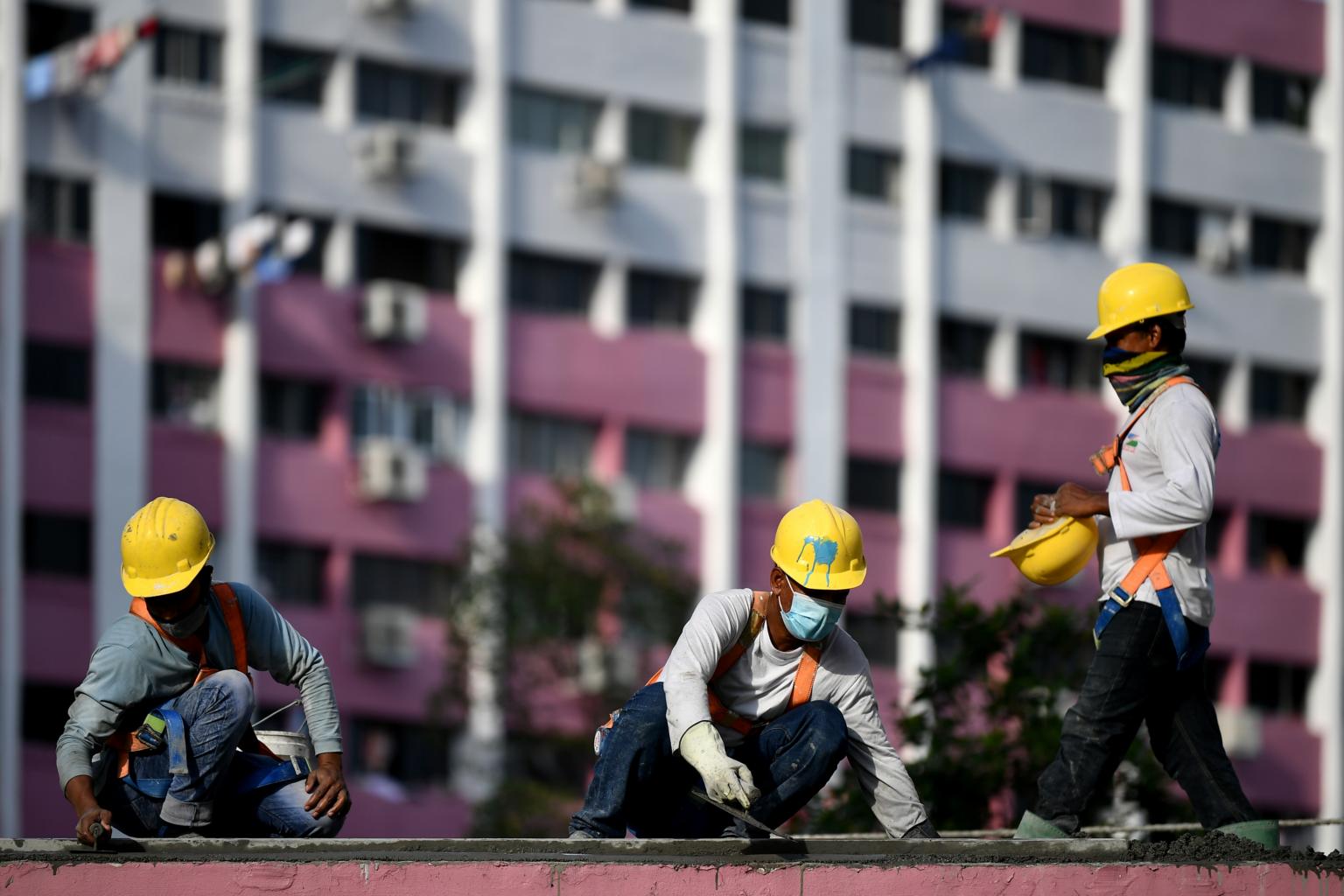Budget debate: More help needed for battered construction sector
Sign up now: Get ST's newsletters delivered to your inbox

The challenges faced by the sector include the 14-day stay-home notice that newly arrived work permit and S pass holders have to serve.
PHOTO: ST FILE
SINGAPORE - More help is needed for the construction sector, which was greatly affected by the coronavirus pandemic last year, said Mr Yip Hon Weng (Yio Chu Kang).
He told Parliament on Thursday (Feb 25) that while the Jobs Support Scheme has been extended for hard-hit industries - including the built environment sector which will receive the wage subsidies until June - more support is needed for construction firms to cope with the immediate fallout from the pandemic.
"Many firms with existing projects must cope with rising costs and labour shortage as a result of the pandemic," he said. "Some foreign workers had returned home. Yet the new arrivals are tightly controlled."
Challenges faced include the 14-day stay-home notice that newly arrived work permit and S pass holders have to serve. Employers also have to pay for workers' accommodation and swab tests.
"I urge the Government to consider providing subsidies as all these amount to increased labour costs and costs of contracts," he said.
He added that the Government can also reduce foreign worker levies, given that safe distancing measures have impacted productivity at work sites.
Priority could also be given to local construction companies for public projects.
He said: "Covid-19 is not the first pandemic, nor will it be the last, that will impact our borders. It is a stark reminder for us to improve our self-sufficiency.
"We need to give our local construction firms opportunities to develop their own expertise and grow such that Singapore will not stagnate even in times of crisis."
This can, in turn, create an "economic multiplier" effect, whereby investments circulate locally and boost economic activity and employment, he added.
He also suggested that the Government can establish certification programmes and a public database of companies that qualify for such preferential treatment. This is to ensure fairness and transparency.
"Implementing specific definitions for local preference eligibility, establishing well-developed goals, clear tracking and reporting will help to ensure that the policies are effective."


